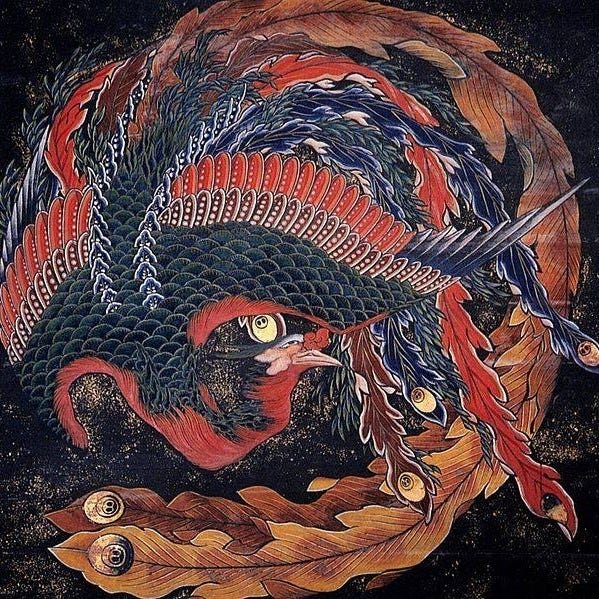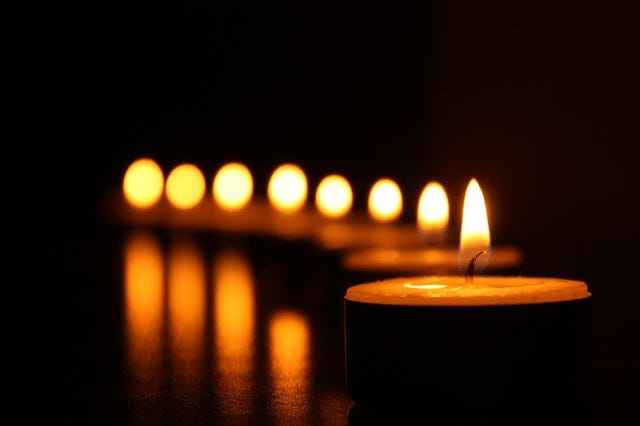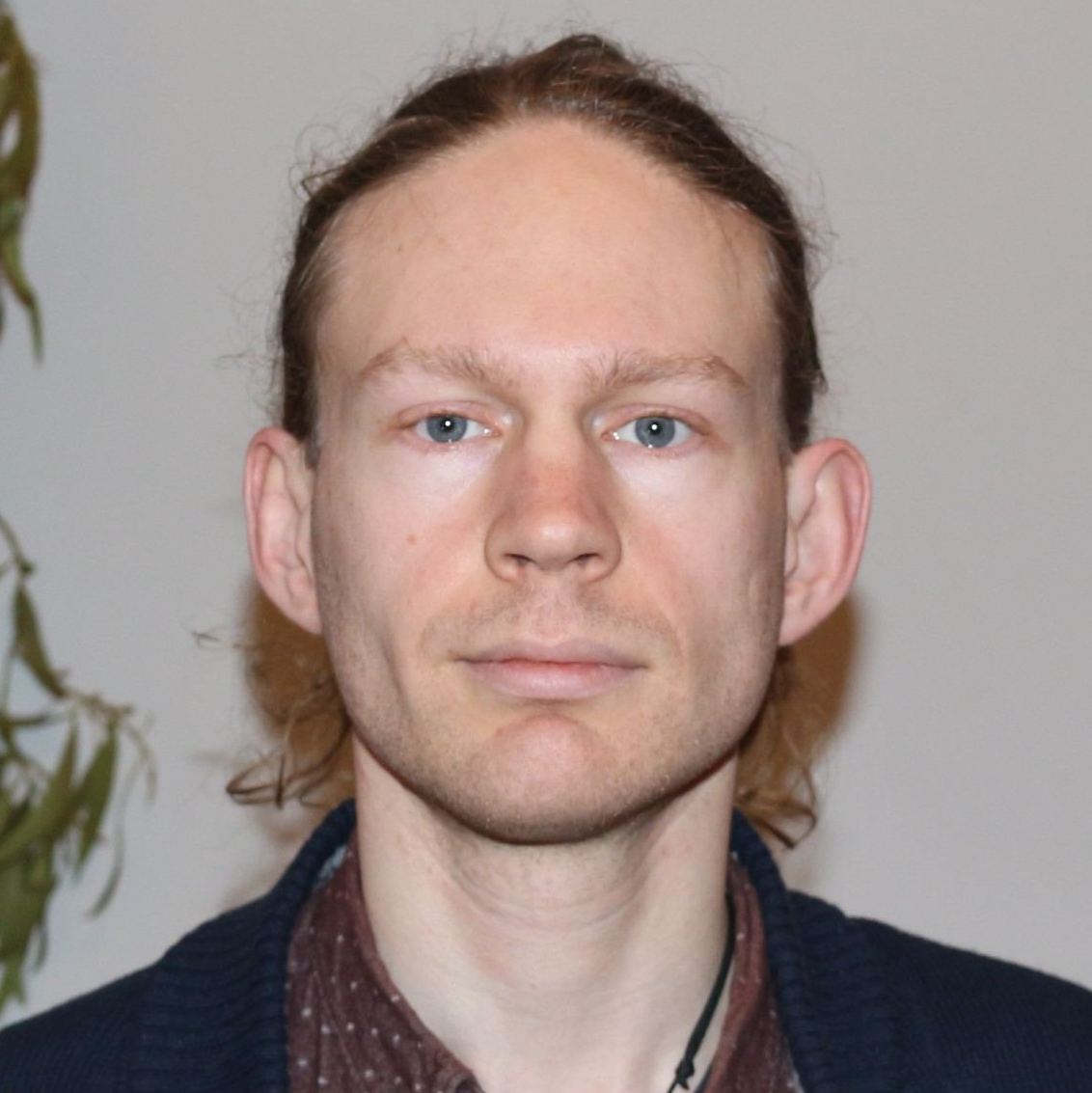Towards a Metamodern Spirituality

Metamodernism is the cultural phase and worldview that comes after postmodernism.
Modernism was the optimistic child of the enlightenment. It believed in our ability to understand an objective reality through science and thus make progress. This worldview still exists in academics like Steven Pinker who argue that we must double down on our enlightenment values in order to carry on driving humanity forward.
Postmodernism came along like your friend who knows everything and critiqued this progress. Didn’t modernism realise the damage it was doing to people and planet in search of economic growth? Just look at the inequality, loneliness, neocolonialism and ecological turmoil all around us. Surely you can see the complete bankruptcy of the modernist worldview! The postmodernist superpower is to critique and deconstruct the world we live in. But in order to go beyond postmodernism’s critiques, we need a new cultural phase and worldview to allow us begin to imagine a new, better world.
Enter Metamodernism.
Metamodernism is the cultural phase and worldview that can help us tackle what Tomas Björkman has called the meta-crisis. This is the spiritual, cultural and philosophical crisis that lies behind the more obvious calamities of today’s world — like the climate and ecological emergency or the failings of liberal democracy. Metamodernism works by deeply absorbing and understanding postmodernism’s critiques whilst still attempting to build a better society and world.
Each previous phase birthed their own forms of spirituality. For example, new age spirituality fits like a glove with our consumerist, capitalist, individualistic, postmodern society. It is focused completely on self-transformation and doesn’t concern itself with transforming the outside world. It’s a build-your-own spirituality from everything on offer in the shelves of the spiritual supermarket. We need something better.
For a while I have been asking the question: what would a spirituality look like that actually helped us confront the crises of our world?
 The Phoenix Project
The Phoenix Project
A spirituality that forced us to engage with the issues of our time rather than helping us to run away from them. This would be a Metamodern Spirituality. It would be a spirituality that would help us birth The Phoenix. Which is our metaphor for the world that wants to emerge from the ashes of our current collapsing and chaotic society.
In this blog post I want to lay out some of the criteria I’ve pieced together of what a metamodern spirituality might look like. I’ll start with the more philosophical and metaphysical pieces of the puzzle and then move onto more practical aspects.
Building a Proto-Synthesis Grand Narrative
A key feature of postmodernism was the abandoning of all grand narratives. Any overarching story of life is seen to be limiting and oppressive. Any attempt to create a grand narrative can easily be deconstructed based on its cultural and value assumptions. Postmodernism realised that many of the things we take for granted in the world around us are simply stories we tell ourselves. Take money for example: just another story.
The metamodern move is to begin to return to grand narratives once again. We need overarching stories that show us our place in the cosmos, give us meaning in life and help us battle the meta-crisis within. In the 20th century we clung to the stories of Capitalism and Communism as if they were new Gods, replacing the Christian God that Nietzsche pronounced was dead. In the metamodern era we must treat any new grand narratives for what they are: just stories. And thus, hold them lightly. We must continually critique them and allow them to evolve.
Our metamodern spiritual grand narrative should be a synthesis of all of our knowledge and understanding about the world. It should break down the centuries old division between science and religion. But we should recognise that it is always incomplete, always ripe for updating, and we should hold it lightly as the deconstructable story that we know it is.
The Return of Teleology
Part of this new metamodern spiritual grand narrative might include a return to teleology. Teleology is an Aristotelian word that means that an object has a directionality or wants to move towards a particular form. Aristotle thought that all objects had a teleology towards becoming their highest manifestation. Humans for example, wanted to move towards embodying their highest virtue, which for him was rationality.
The Scientific Revolution overturned teleology and suggested that things don’t have directions: they just move according to their parts. And so teleology was banished to the trash can of history.
 Becoming a cup
Becoming a cup
But with the rise of complex systems science there is the possibility for a kind of teleology to make a return. Whilst complex systems science doesn’t suggest that a cup wants to be a cup, it does suggest that the parts of a cup self-organise in a complex system and the overall result of that is a movement towards cup-ness. That’s their teleology.
From a spiritual perspective this then begs the question of what the complex system of the universe is self-organising towards. When you look over the systems of life there does seem to be a pattern: the emergence of complexity. This can be seen at all scales of the universe from the smallest to the largest. Atoms self organise to create molecules. The animals and plants of nature self-organise to create a thriving ecology. And your own organs self-organise dynamically to create the being that we call me. In some sense the universe has a teleology towards more and more complexity.
This isn’t a scientifically provable fact because it’s not an experimental proposition but as our scientific understanding increases it seems like a more and more plausible interpretation. In complex systems science, the state of a system at which this emergence of complexity is maximised is called the edge of chaos. This is the place in which science and spirituality come together as one and why we call our formulation of metamodernism The Edge of Chaos.
Traversing the Transcendent Immanent
Another important feature of a metamodern spirituality is what is called The Transcendent Immanent. Sounds complicated right: let me explain!
The Axial Revolution, which occurred in places like Greece, India, Persia and China between the 8th and 3rd century BCE, brought about many new ways of thinking that still heavily influence us today. Ever since then, we have been obsessed with a ‘two-world’ mythology.
The first world is immanent. It is the physical realm that we occupy that some consider dream-like. It is downplayed in many spiritual traditions as the place of suffering, self-deception and sin.
The second world is the transcendent, spiritual realm: of love, bliss and the end of suffering. This separation between the immanent and the transcendent gives us a mythology that inspires us to overcome our worldly limitations and reach for our highest potentials.
We see this same fundamental mythos running through the majority of our religions and philosophies. For example: Plato talked about a cave of illusion and a transcendent realm of forms, at the heart of Christianity is the comparison between an Earthly world of sin and a transcendent Heaven above and even Descartes followed along with his mind-body split.
A big part of metamodernism is moving beyond this two-world mythology. Why? Because, by setting up a bi-polarity, it inherently devalues our present moment experience and denigrates the immanent realm that most of us are forced to live within. Could this denigration of the immanent, partly be to blame for our uncaring attitudes towards the natural world? I think so. If things like trees are just physical dream-like manifestations in an immanent world that we must overcome, then why should we care for them?
A metamodern spirituality will begin to see the transcendent within the immanent. It will begin to transcend into rather than out of a deeper and more embodied relationship with the world. Instead of seeing God as a distant man in the sky, we will begin to see the Godly nature of reality itself, that every moment is an unfathomable gift that just keep on giving. We will begin to see the very nature of our experiences as alive and sacred.
But how can we hold onto the inspirational aspects of the ‘two-world’ mythology, that pushed us towards bettering ourselves and the world? The answer is the self-organising teleology we just discussed. Moving towards the Edge of Chaos or the emergence of more complexity, consciousness and love is a movement towards Godliness. This presents the paradox at the heart of the Transcendent Immanent: existence is Godly, but some ways of being are more godly that others.
Abandoning Anthropocentrism
Another important part of this switch to Transcendent Immanence is moving beyond Anthropocentrism. This is the idea that humankind is the most important element of existence. What arrogance! Many philosophies that put humanity at the centre of the universe, lead to us devaluing the natural world around us and using it for our own ends.
The most obvious example of this is Kant’s ‘Copernican Revolution’ which put human subjectivity at the centre of the universe: arguably leading to many of the troubles of the modern world. In his formulation, the reality we experience is determined by our minds and real objects in the world are inaccessible to us. This devalues the material, natural world as objects such as trees don’t intuitively have a mind-like quality and thus we see them as inanimate and fair-game for exploitation.
A Metamodern Spirituality must begin to see that mind or subjectivity is not limited to us but is inherent in the world and universe around us. The philosophy of Spinoza, visions of panpsychism (which is the view that all things have a mind or a mind-like quality) and panentheism (which is the view that divinity pervades all things) can help us in this regard.
Healing the Wound of Dualism
Seeing mind or subjectivity as inherent in the world and universe is part of healing one of the most dominant versions of the ‘two worlds’ myth: the wound of dualism.
For much of western philosophy we have looked at reality through either an objectivist or subjective lens. Modernism has an objectivist approach to reality. i.e. it believes that a world exists ‘out there’ independent of observations. Postmodernism, on the other hand, focuses on the subjective aspects of experience. Culture and value differences mean that everyone’s experience of reality is distinct, unique and not comparable. The objectivist approach leads to us being in a dead world without meaning. The subjectivist approach leads to us occupying our own worlds, completely separate from each other and deeply wounded. These two approaches continually re-appear in Western Philosophy and culture, for example in the Romantic and Empiricist movements.
A dualistic approach cannot account for the participatory nature of reality. It always argues that there is just a being in a world but the relationship between being and world is not important. Instead of focusing on either subject or object, a metamodern spirituality would be based on the relationship between subject and object or what has been called The Transjective. This is deeply inspired by the work of Heidegger whos *Dasein *meant being-in-the-world which signified, similarly to Nietzsche, that one is always a being engaged in the world not separate from it.
Another way to think about this shift to the Transjective is through Irvin Yalom’s work on the having vs the being mode. He argued that in our society we tend to operate largely in the having mode which corresponds to a subject looking to manipulate objects. We manipulate the world in order to obtain objects and possess particular things. For example: I have a car. The being mode, on the other hand, is about changing the nature of your being. For example becoming a doctor. It’s not something you have but something that moves through you. The being mode is deeply participatory and transjective. Our society has tried to satisfy itself purely through the having mode leading to intense suffering as our being needs are not met. So we need a spirituality that gives space to our being needs through The Transjective.
This position is very aligned with the deepest truths of many religious and spiritual traditions which stress that the way we look at reality and how reality is, are not separate but deeply entangled and intertwined.
Blasting open the Metaphysical Monoculture
To reach a Metamodern Spirituality we must blast open the metaphysical monoculture we live within.
Alright smarty pants! What the hell does that mean?
Well, first let me explain a metaphysics. It’s a set of the underlying assumptions that give rise to our beliefs about existence and often is made up of an epistemology, an ontology and a cosmology. More fancy words — when will this end!
-
An Ontology tries to answer the question of ‘What is real?’ or ‘What exists?’
-
An Epistemology tries to answer the question of ‘How we can know?’
-
A Cosmology tries to answer the question of ‘What is our place in the cosmos?’
These metaphysical assumptions are axiomatic: they cannot be proven by science or logic but are the foundation stones that we build science and rationality upon.
A monoculture is an agricultural term for when we are only cultivating one particular crop in a given area. Our culture is only cultivating one particular metaphysical crop. When in fact many are possible and desirable — many crops would mean a thriving metaphysical ecosystem!
This is the metaphysical monoculture at the heart of our culture:
-
We answer the question of what is real with material stuff like atoms.
-
We answer the question of how we can know with the propositional knowing of logic and science.
-
We answer the question of what is our place in the cosmos by saying that we largely don’t have one. There is no meaning or purpose inherent to the universe: we must create our own.
It is these assumptions that lie at the heart of our toxic, alienated, ecology destroying way of life. They are not all problems in themselves but when we hyperfocus on them at the expense of any other perspective, then we have a problem. For example, by treating trees as just matter, we devalue them and they become fair game for us to exploit at our will. With a different, more mytho-poetic, epistemology we might instead see trees as divine, radiant beings and work to protect them. We must blow open the doors to explore new metaphysics! This is guerrilla metaphysics.
We can explore new ways of knowing, new epistemologies that fight against the epistemicide of our culture. For example we might explore: perspectival, procedural, participatory, imaginal and intuitive forms of knowing. We need an epistemological renaissance that enriches our very existence and brings life back to the dead world of atoms we have created.
We can explore new ideas about what is real or what exists: some have called this ontological terrorism. I love the work of Gilles Deleuze for blowing open this particular doorway. For example, whilst our culture believes that the only unit of sociological import is the individual, there are so many other ways we can see ourselves. Me and Will, my co-creator of the Phoenix Project, often talk about ourselves as a dividual called Sophie. She is the person greater than the sum of the parts of just the two of us. She is abundantly creative and energetic!
And as I have discussed earlier in the section about grand narratives, we can begin to imagine new cosmologies, new ways of looking at our place in the cosmos.
Inner Work For Global Political Transformation
Blasting open the metaphysical monoculture can allow us to overcome our fixation with individualism, a vital shift if we are to begin to collectively heal our world.
We live within and practice largely self-centered, individualistic spiritualities. “I am on a path towards enlightenment and it’s going to help me live a more harmonious, peaceful, anxiety free life”. The aim is to become happy whatever the circumstances in the world around you.
As has been argued by both Žižek and in the recent bestseller McMindfulness, this kind of spirituality plays into the hands of our toxic capitalist system, as by practicing mindfulness we make ourselves more able to cope with the anxieties of late stage capitalism rather than actually attempting to change and overthrow our bankrupt system. I discuss this more in my blog on mindful action.
We have lost faith in changing the outer world, so we focus on making ourselves spiritually pure.
A metamodern spirituality must lose this myopia of individualistic spirituality. We must break down the division between inner and outer work that tell us we must make a choice which to focus on or which is more important.
We must tell activists focused on the outer transformation of our society and culture that to best do their work they must also engage in the inner work of fighting the system within themselves. And we must tell those hyper focused on inner work that our peace and tranquility is deeply dependent on the system we live within. Neoliberal capitalism is the main force in the world preventing our collective enlightenment and we must work to move beyond it.
Once the inner/outer work distinction is seen through, our life can become a constant dance between working on ourselves and working on the outer world, whilst at the same time realising that there is not really any separation between them. Both bring more love, wholeness, peace and beauty into being.
In order to engage in outer work as part of our spiritual practice there is another big division that we must break down. This is between spirituality and politics. Many religions and spiritualities of the past have been largely a-political which allowed them to attract the widest possible devotees.
But with the fate of our planet on the line we can no longer maintain this division. What we must realise is that spirituality is inherently political. The spirituality we practice brings particular ways of seeing into the world that shape our reality and push us towards particular political outcomes. And our politics is and should be deeply inspired by our spirituality. We want to bring a politics into the world that manifests our deepest spiritual insights about the nature of reality. We want our politics to represent and serve the best of ourselves, not the worst. Some examples of this melding of politics and spirituality are Ronan Harrington’s very meta-modern Alter Ego gatherings and the late Mark Fisher’s Acid Communism which tries to bring together left wing politics and psychedelic consciousness.
A great imaginal story we can embody is that of the Shambahala Warrior. The story speaks of a group of people who are destined to use compassion and the deepest insights of meditation to save our planet from destruction. A metamodern spirituality would help us live out and embody the archetype of the Shambahala Warrior whilst using ironic distance to avoid taking it too seriously. Books and movements like Spiritual Activism, Engaged Buddhism and Mystical Anarchism can help us work towards this.
Practices of Reconstruction
Another important aspect of a metamodern spirituality is taking advantage of guerrilla metaphysics to inspire practices that reconstruct reality.
Many contemplative spiritual traditions focus on deconstructing the world around us. For example, in Vipassana Buddhism we try to deconstruct the stories that are causing us to suffer into their smallest sensory units. We then continue to deconstruct those very sensory units themselves to discover their inherent impermanence, lack of self and unsatisfactoriness. These revelations hopefully lead to a reduction in suffering. But they can often also lead us to reify these discoveries by treating them as absolute truths — placing us right back in a metaphysical monoculture. A metamodern spirituality must avoid this.
Deconstruction will not be enough to fight the meta-crisis. If all we practice is deconstruction then we will find it hard to avoid the nihilist hole where any possible meaning to our life can be dismissed and deconstructed into mere sensations. Practicing deconstruction also often reifies inaction and passivity. Precisely the opposite of what we need in these turbulent and chaotic times.
So a metamodern spirituality must begin to reconstruct, re-fabricate and re-enliven the world around us. In Buddhism this move has been called the fourth turning, but similar moves are possible in other traditions. In Buddhism this moves comes from a deep understanding of the concept of emptiness. This is the idea that all of our experiences are dependent upon the way that we are looking at the world. This means that we are always operating within a metaphysical structure of one kind of another. This dispels the notion that there is one way that reality is. Or one absolute truth about reality. We are always participants in the game of life.
Seeing our concepts and experiences as fundamentally empty can take us to what Daniel Thorson has called Liquid Mind and give us new freedom to play with reality itself. The book Seeing that Frees is a great place to start this journey into emptiness. Liquid Mind can help us have the freedom to (re)-construct the grand narratives we discussed earlier while preventing us from getting caught up and lost within them.
Rob Burbea’s work on soul-making and the imaginal is a great example of this metamodern turn towards reconstruction. Now that we have opened up the realms of metaphysical possibility we can begin to explore practices that re-create the world in ways that lead to beauty and meaningfulness and that enhance the sense of sacredness in our lives.
Why we need to Wake Up, Clean Up, Grow Up and Show Up?
Abandoning a focus on practices of deconstruction can lead us to realising that there is more than just one spiritual path available to us.
How many times have you heard of a supposedly enlightened guru who has been caught doing unwholesome acts? A lot, right! But it is quite possible that they weren’t lying about having had many insights into the nature of reality because spiritual growth is more complex and multifaceted than we normally realise. If there is more than one spiritual ‘path’ then these unethical gurus could have made progress along one of them but be left lacking in other areas. A metamodern spirituality must capture this complexity.
The ‘Wake Up, Clean Up, Grow Up, Show Up’ model suggests that there are several different independent paths to making real spiritual progress. Waking Up is the more traditional path of coming to realisations about the nature of reality that are freeing and empowering. Cleaning Up is dealing with any trauma or shadow that prevents you from fully bringing yourself to life. Growing Up is having a more complex and nuanced understanding of reality. One in which you are able to take multiple perspectives and synthesise them together. Showing Up is the least well known of the four paths and involves discovering your deepest purpose and meaning.
These four paths are deeply interconnected with each other. For example, the Waking Up path can often be used to bypass Cleaning Up. If we are able to enter states of bliss at will, we can use them to avoid confronting the trauma we carry around from our childhood, which can then later bubble up in our life. This is often called Spiritual Bypassing.
A metamodern spirituality must incorporate all four facets of spirituality and show their deep interconnection. Some techniques like The Diamond Approach and Big Mind already merge several of these aspects together in one method.
Coming upon Communitas

“The next Buddha will be a Sangha.”
A Sangha is a group of spiritual practitioners. This quote captures the idea that metamodern spirituality will largely be a communal affair. We must fight against the deeply individualistic nature of both our own culture and previous spiritualities. It is only if we are able to come together, that we will be able to truly face our collapsing civilisation head on.
We live in a time of deep alienation from one another. Any attempt to heal the trauma of our world must be based upon coming together communally once again. Our spirituality must cultivate a sense of communitas which is a Latin word meaning a feeling of deep connection with others and sense of belonging.
In order to bring this sense of communitas, people have been developing what are called we-space practices that can bring about deep collective coherence, understanding and the sense of a group field. An example is Ria Baeck’s Collective Presencing.
We are also witnessing the spread of different meditative techniques that focus on more group and dialogical methods. An example of this is Insight Dialogue which helps people reach deep meditative insights through dialogue about present moment experience between two people. Another example are soulmaking dyads, where two people explore the imaginal realm together.
We also need a spirituality that is democratic, peer-to-peer and participatory to avoid the problems of the cults and gurus of previous spiritualities. An example of a forward thinking group is the London Radical Mindfulness Group. Combining this with a scientifically supported spirituality where an ecology of practices are subject to the scientific method will give groups confidence that there is a foundation for their beliefs and practices.
The Return of Ritual

Another vital part of a metamodern spirituality is the return of ritual. This is another consequence of blowing open our metaphysical monoculture. To most western humans, rituals have become a farce. How could the sacrament be anything other than wine and bread? And how could just putting physical stuff in your mouth have any spiritual impact? We eat bread every day. What’s the big deal?
But once we are open to sometimes taking a more consciousness-first approach and once we stop deconstructing every aspect of our experience to materialistic roots, we can realise that rituals can be deeply transformational experiences.
A few weeks ago I took part in a ritual of crossing the bridge over a river and shouting out into the cosmos something I would hold myself accountable to over the coming year. As this experience was held by a group and I was able to not constantly be questioning it’s validity it turned out be a really powerful one for me.
Rituals can help us to bond with each other and create a sense of community. They can help us find our place in the cosmos and rediscover a sense of meaning and purpose in life. They can inspire a deep connection to the natural world and to the gift of life itself. Exactly the things we need to tackle the many crises of our time.
Humans have been using rituals for millennia and we have only abandoned them in the last centuries to largely devastating effect. If we are to confront the meta-crisis: we must return to ritual.
Inspired by Indigenous Cultures
A metamodern spirituality must respond to our continual destruction of the natural world. We are destroying the vital systems that support our civilisation and taking thousands of species with us in the planet’s sixth mass extinction event. When will we stop wreaking havoc upon the beautiful gift of life on Earth?
A metamodern spirituality must resacrilize and reanimate the natural world of which we are a part. Many of the philosophical points we discussed earlier like opening up to guerrilla metaphysics can help us to accomplish this. Stories like the Gaia Hypothesis give us an imaginal way of looking at the world where we are being constantly cared for by mother nature and we can change our lives to enact that care for all life. That brings deep meaning — we know we are inseparable from our living planet.
But more importantly a metamodern spirituality will look for guidance from indigenous cultures who have managed to live more harmoniously within their ecosystems. Approaches like 8 Shields bring together indigenous wisdom traditions from around the world into a comprehensive framework for living in relationship and harmony with nature.
We should particularly look to indigenous wisdom in the areas of eldership and coming of age rituals. We live in a world largely without elders. Old people in our society are often ridiculed. But in many cases they have built up wisdom over a lifetime that could help us live more harmoniously with life.
Similarly, our culture has no rituals to take us through the stages of life. In many indigenous cultures, the young are initiated into adulthood by elders, people whose responsibility it is to channel the wisdom of the ancestors before us. Without these initiations we succumb to ‘Peter-Pan syndrome’, where we have adult bodies but remain as children and are unable to confront the many challenges of our modern world. Time to Grow Up!
Conclusion
 Spirituality at the Edge of Chaos?
Spirituality at the Edge of Chaos?
I’ve laid out my key criteria for a metamodern spirituality. We must create a ritualistic group spirituality that breaks open the metaphysical monoculture, moves towards the transcendent immanent by using an ecology of transjective practices to create groups that can confront the many compounding crises of our time. In future posts I would like to bring many of these features together into a collective philosophical whole and synthesis that we call The Edge of Chaos. This is a spirituality and meta-narrative that can help us face the meta-crisis and avert the collapse of human life on Earth. And an everyday approach to life that can help us reach peak emergence, flow and creativity.
But for now I would love to hear feedback on the ideas in this post. So get commenting, discussing and thinking!
